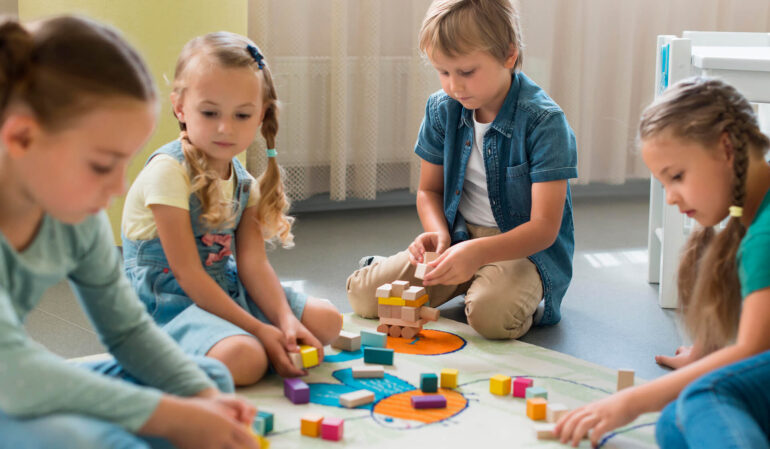
Blog
October 12, 2023
Play schools play a crucial role in laying the foundation for a child’s future academic and social success. These early learning environments provide a unique blend of education and play, creating a nurturing space for children to explore, discover, and develop essential skills. In this blog post, we’ll delve into the significance of play schools in fostering holistic development in young children.
- Learning through Play: Play is a child’s natural way of exploring the world. Play schools incorporate various activities that stimulate a child’s cognitive, emotional, and physical development. Through interactive games, creative arts, and group activities, children not only acquire knowledge but also learn important social skills such as sharing, cooperation, and communication.
- Socialization Skills: Play schools serve as the first social setting for many children. It’s where they learn to interact with peers, share toys, and communicate effectively. These early social experiences are fundamental for building confidence, forming friendships, and developing a sense of belonging.
- Early Academic Readiness: While the primary focus of play schools is on fostering social skills and emotional intelligence, they also introduce basic academic concepts in a fun and engaging manner. Activities like storytelling, counting games, and simple crafts lay the groundwork for future academic success, making the transition to formal education smoother.
- Structured Routine: Play schools provide a structured routine that helps children develop a sense of order and predictability. A consistent daily schedule, including playtime, learning sessions, snacks, and naps, contributes to a child’s overall well-being and helps in developing healthy habits.
- Cognitive Development: Cognitive development is a crucial aspect of early childhood education. Play schools incorporate age-appropriate activities that stimulate brain development, enhance problem-solving skills, and encourage creativity. Activities like building blocks, puzzles, and imaginative play contribute to the cognitive growth of young minds.
- Emotional Well-being: Play schools create a supportive environment where children can express their emotions freely. Trained educators help children navigate their feelings, promoting emotional intelligence and resilience. This early focus on emotional well-being lays the foundation for future mental health and self-awareness.
- Parental Involvement: Many play schools encourage parental involvement through regular updates, parent-teacher meetings, and interactive events. This collaborative approach ensures that parents are informed about their child’s progress and can actively participate in their educational journey.

Nam vel lacus eu nisl bibendum accumsan vitae vitae nibh. Nam nec eros id magna hendrerit sagittis. Nullam sed mi non odio feugiat volutpat sit amet nec elit.
Nam vel lacus eu nisl bibendum accumsan vitae vitae nibh. Nam nec eros id magna hendrerit sagittis. Nullam sed non odio feugiat volutpat sit amet nec elit.
Nam vel lacus eu nisl bibendum accumsan vitae vitae nibh. Nam nec eros magna hendrerit sagittis. Nullam sed mi non odio feugiat volutpat sit amet nec elit.